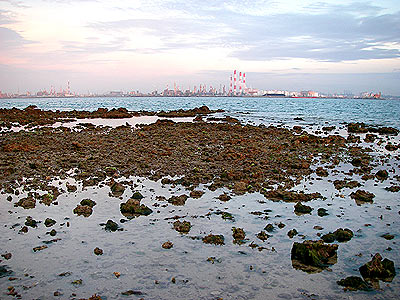
You can see the reef above with Jurong Island in the background.
This was my first trip to the little patch reef. I had assumed that it would be somewhat like Jong, but to my surprise, it turned out to be even better!
Cyrene Reef was much, much richer, and had lots of beautiful seagrass. Find out more about the seagrasses at Cyrene Reef at the Team Seagrass Blog.
Apart from the lovely seagrasses, here are some of the wildlife I saw at Cyrene Reef.
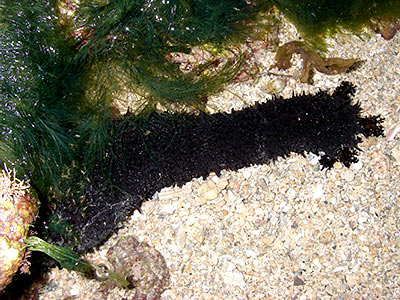
A black sea cucumber (Holothuria leucospilota). We often saw them on our shores actually. Understand that some of the others also found another species of sea cucumber - the stonefish sea cucumber (Actinopyga lecanora).
There were many swimming crabs on Cyrene Reef, and here's one of them, a flower crab (Portunus pelagicus).
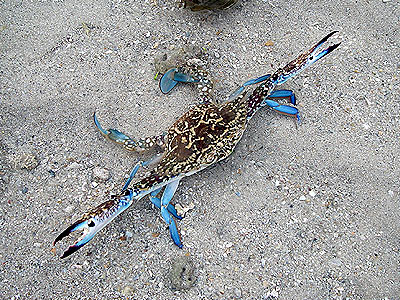
It was ultra aggressive, and raised its pincers the moment it saw me. In fact, it even ran towards me a few times, snapping at my foot with its pincers! Good thing that I was wearing booties :)
I also found lots and lots of sand dollars at the sandy area.
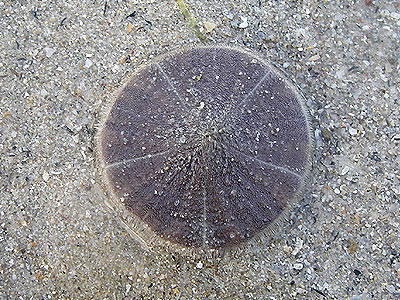
Sand dollars are actually related to sea urchins, sea stars, and even sea cucumbers! They belong to this group (aka phylum) called Echinodermata, which means 'spiny-skin' in Greek. If you look at a sand dollar carefully, you will find that it is covered with tiny little spines that make it feel velvety when you touch it.
I found a carpet anemone (Stichodactyla sp.) too!
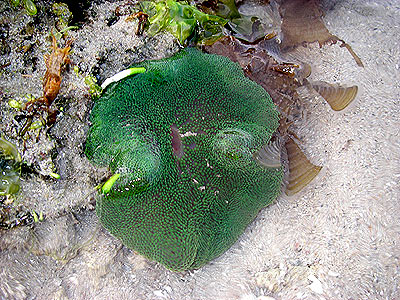
And a little synaptid sea cucumber (Family Synaptidae). But this one was only about 40cm long - much smaller than the one we found in Semakau Landfill.
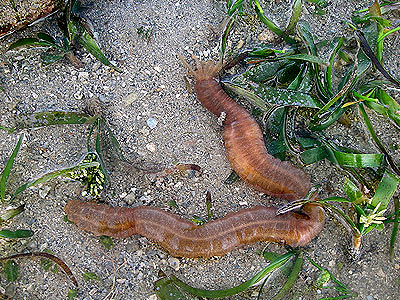
There were several peacock anemones (Family Cerianthidae) in the seagrass lagoon.
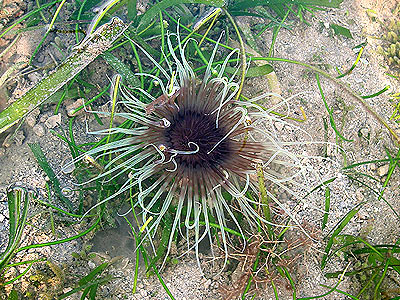
There were many corals as well, both hard (below top 2) and soft (below bottom 2).
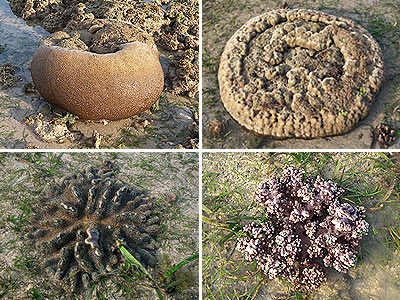
And there were also beautiful carpets of zoanthids (Order Zoanthidea) here and there. Also known as colonial anemones, and a zoanthids colony comprises little polyps linked to each other.
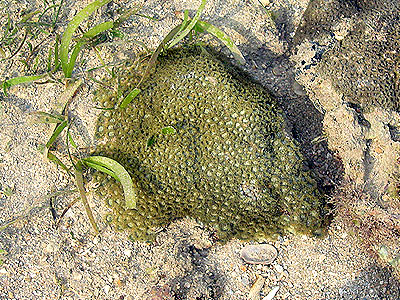
And here's a really pretty flatworm. Looks like a Pseudobiceros bedfordi to me.
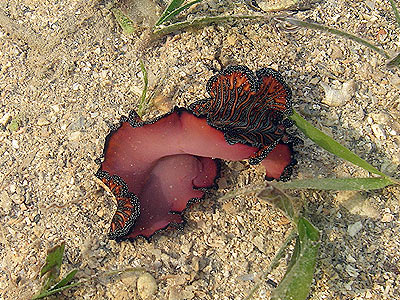
We also saw several pufferfish today!
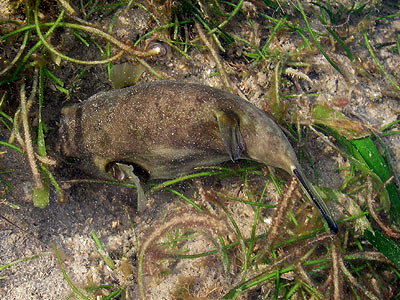
There was also a school of juvenile striped eel-tail catfish (Plotosus lineatus)! These young fish usually swim together in a "ball" for protection. Sometimes, there could be as many as hundreds of them together!
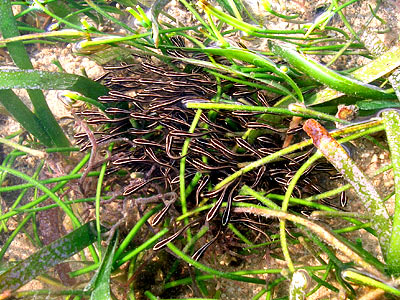
I have read some where that knobbly sea stars (Protoreaster nodosus) can be found at Cyrene Reef. After searching high and low for them, I finally found one!
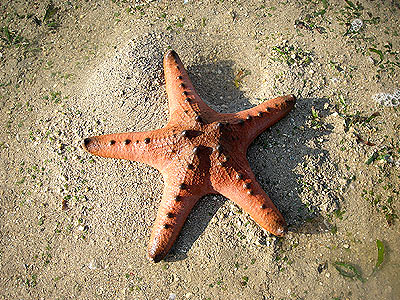
It's less than 20cm wide (compared with the 30cm ones we usually see) and has fewer knobs. Could it be a juvenile? Past studies had shown that the local knobbly sea star population comprises almost entirely of adults, which could suggest low or infrequently recruitment of young ones. So if this is a juvenile, then it is probaby a really good sign that they have started recruiting again! :)
I also found a little cushion star (Culcita novaeguineae), about 12-13cm wide! The ones I've seen else where were like at least 20cm wide! Do hope this is yet another good sign that our sea stars are reproducing!
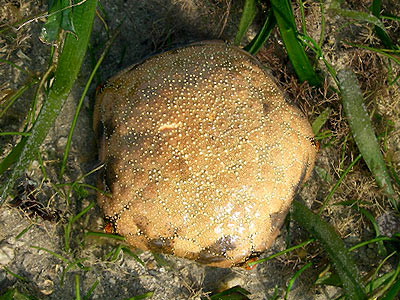
Indeed, Cyrene Reef harbours lots of little surprises.
Understand from Marcus that they found common sea stars and sea urchins at the other side of the reef, which I didn't have the time to explore! Check out his Annotated Budak blog for more details!
Really hope to go back there again some day :)

so envious of you guys who got to go cyrene this morning!
ReplyDeleteI want to go too!
It does appear to be quite a pradise! puffer fish! cushion star! knobby seastar! wowowowowowowowow!!!!!!!!! all i never see before in the wild :D
still hoping for that one day :P
Yup... really beautiful place... :)
ReplyDeleteit looks soo pretty!
ReplyDeleteis the water deep ? or is it knee high :o ?